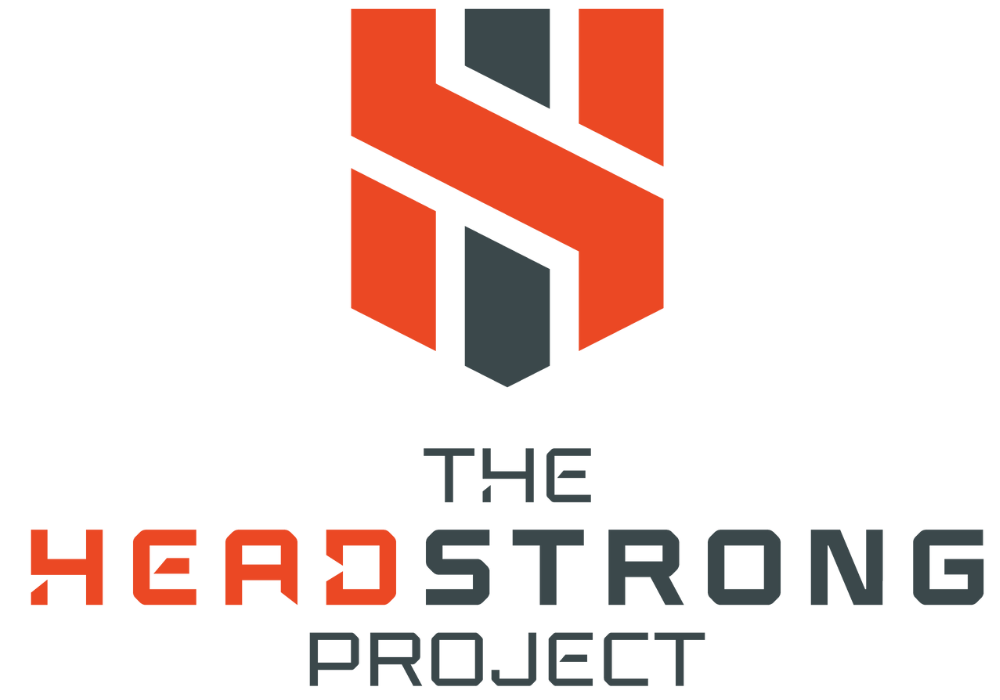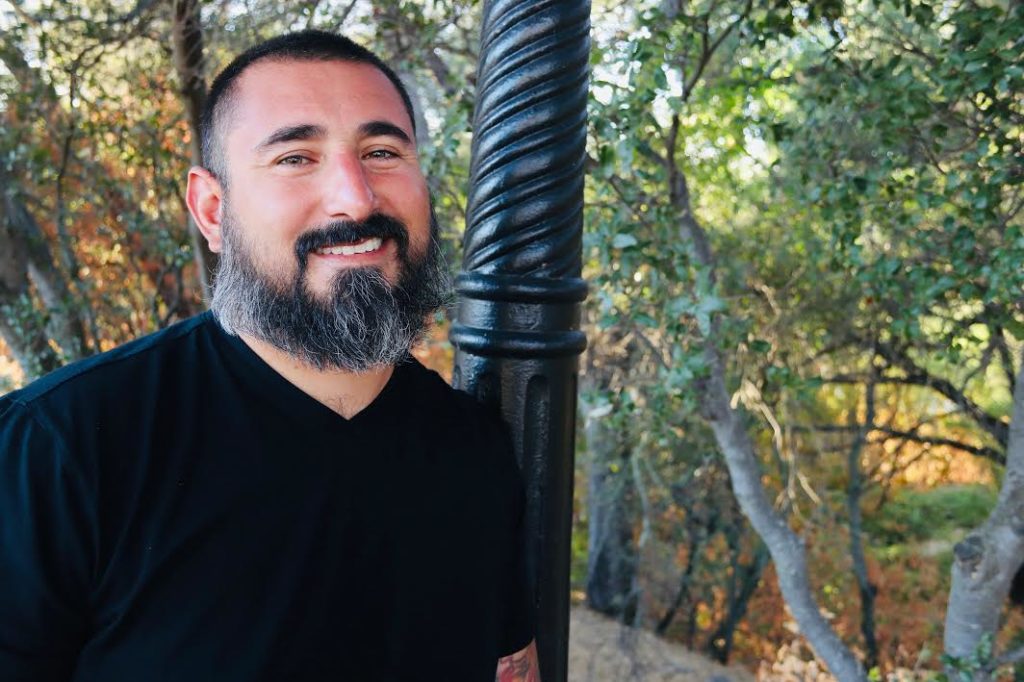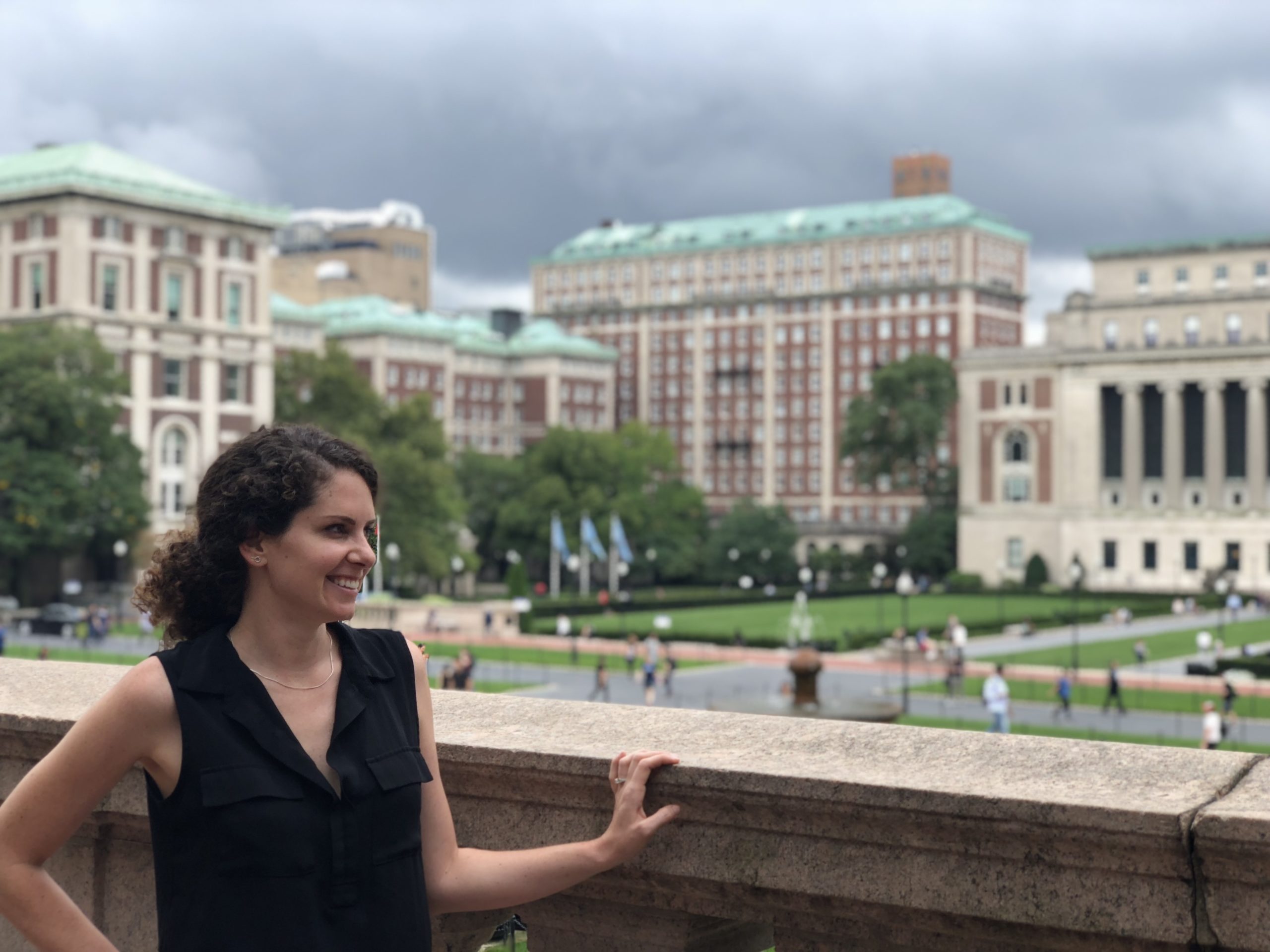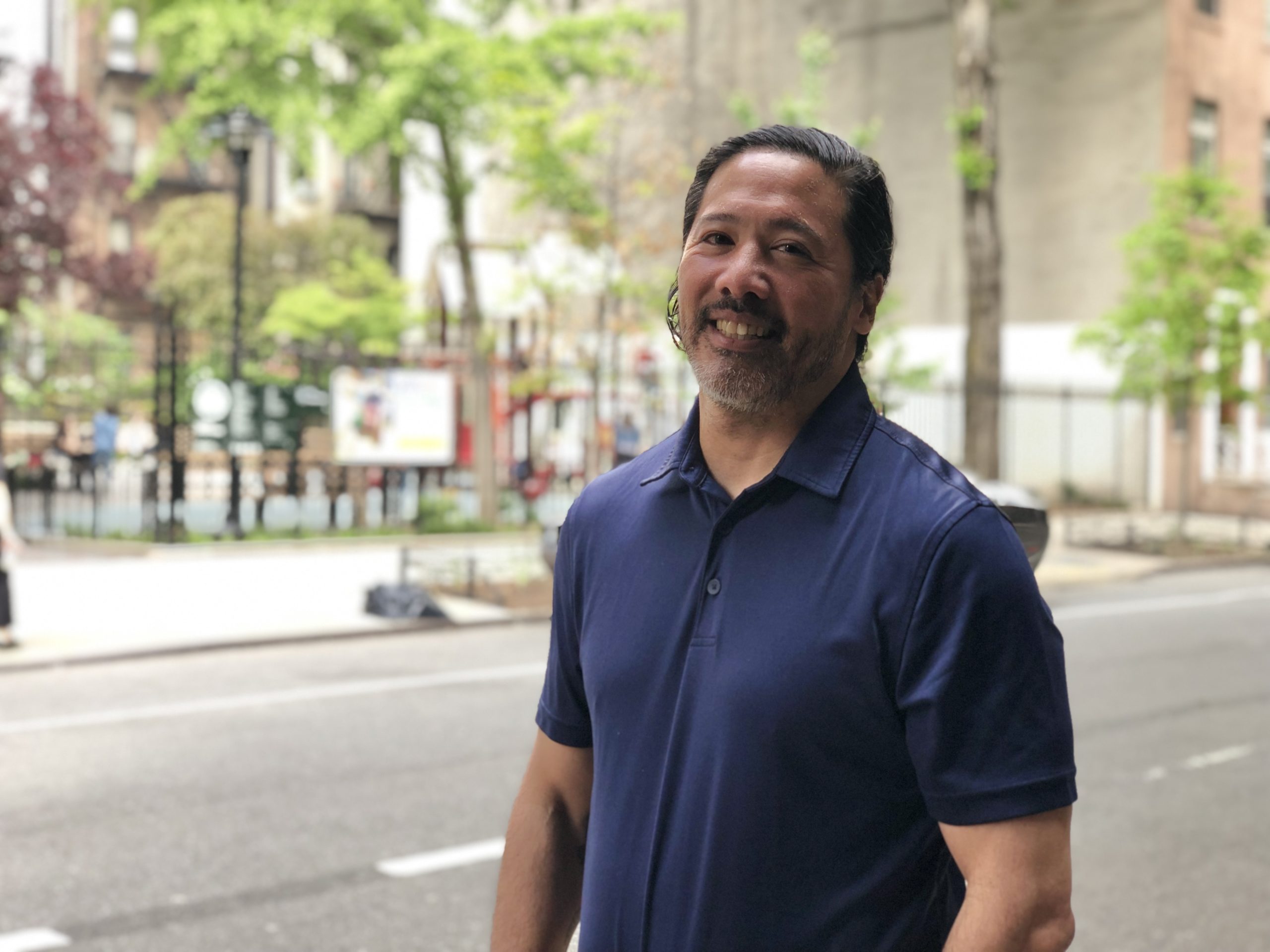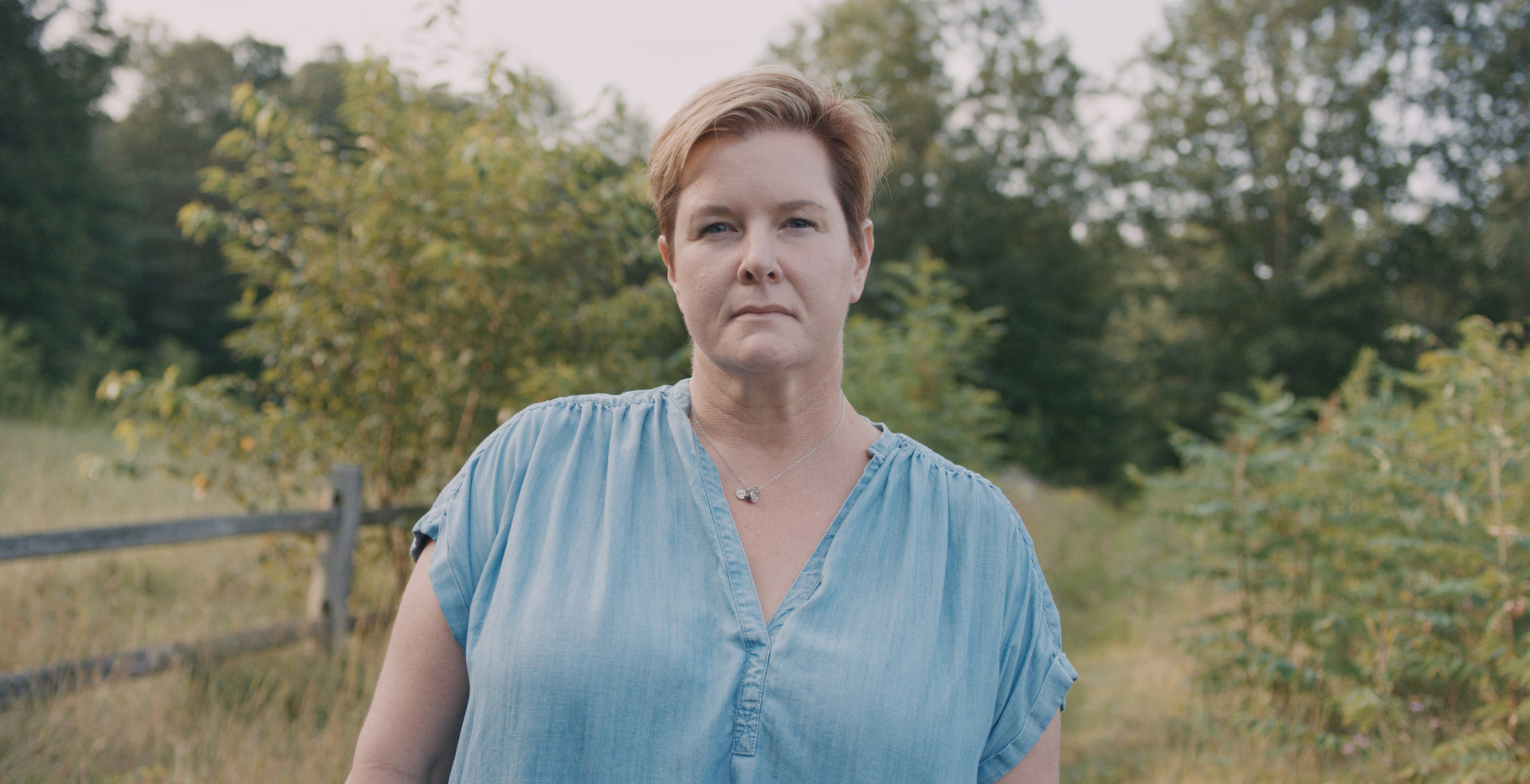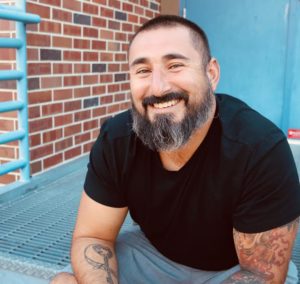 “I was 19 years old when 9/11 happened. I quit my job in the Bay Area that day and signed up for the Army. I went into the service very unsure of what it would be like, but I knew I wanted to help in any way possible. I signed on to be a forward observer with the infantry and was tasked with helping navigate the terrain while also calling for artillery, mortars, and close air support.I got sent to Iraq in the initial invasion and I just assumed we would dominate and then be out in no time. Surprisingly I didn’t see a whole lot of action when I first deployed in 2003; however, when I went back in 2006, I really had a lot better of an understanding of what war is like. Violence erupted in our area in particular and we got the brunt of it. We typically had an explosion or a gunfight in our sector every day. Even when they weren’t shooting us, they would be shooting at each other and we would have to respond and try not to get ambushed. The enemy was effective though because we lost nine guys on that trip. That deployment changed everyone that was there; from the Colonel and Sergeant major, down to the lowest private we had. The youngest guy was 17 when we got there and he actually only got to our unit a week before we deployed. I can’t tell you how much guilt I had after he got blown up. Those kind of situations really take a toll on you, but that was our reality for a year. There was no morale left when we got home and the only thing I could think about was how devastating it must’ve been for the families of all the guys we lost. I didn’t realize how that impact and the PTSD would manifest in our lives. We didn’t get a chance to process our brother’s loss and when we got home many of us turned to drinking, isolating, and acting like everything was ok.
“I was 19 years old when 9/11 happened. I quit my job in the Bay Area that day and signed up for the Army. I went into the service very unsure of what it would be like, but I knew I wanted to help in any way possible. I signed on to be a forward observer with the infantry and was tasked with helping navigate the terrain while also calling for artillery, mortars, and close air support.I got sent to Iraq in the initial invasion and I just assumed we would dominate and then be out in no time. Surprisingly I didn’t see a whole lot of action when I first deployed in 2003; however, when I went back in 2006, I really had a lot better of an understanding of what war is like. Violence erupted in our area in particular and we got the brunt of it. We typically had an explosion or a gunfight in our sector every day. Even when they weren’t shooting us, they would be shooting at each other and we would have to respond and try not to get ambushed. The enemy was effective though because we lost nine guys on that trip. That deployment changed everyone that was there; from the Colonel and Sergeant major, down to the lowest private we had. The youngest guy was 17 when we got there and he actually only got to our unit a week before we deployed. I can’t tell you how much guilt I had after he got blown up. Those kind of situations really take a toll on you, but that was our reality for a year. There was no morale left when we got home and the only thing I could think about was how devastating it must’ve been for the families of all the guys we lost. I didn’t realize how that impact and the PTSD would manifest in our lives. We didn’t get a chance to process our brother’s loss and when we got home many of us turned to drinking, isolating, and acting like everything was ok.
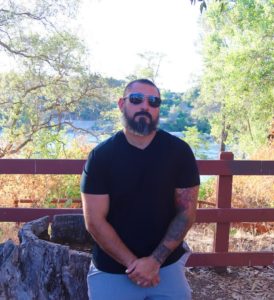 My mental health really started to suffer and I started having a lot of behavioral issues. I was aggressive and irritable. I wasn’t sleeping and my nervous system was wrecked. My troop who had gotten blown up during our second deployment was living with me. It was not a good environment for either of us to be living in because we had a lot of firearms in the house and a lot of alcohol and neither of us were getting the mental health treatment we needed. Eventually, I got married and had a baby and started working in the oil field putting explosives in the ground. I was working 100 hours a week, making over 100k a year and totally ignoring all the warning signs of an impending breakdown. I wasn’t dealing with any of the issues I was having. Everything really came to a head in October 2010 when I got arrested and sent to jail. All the pent up anger and emotions came out at once. It was ironic to sit there in jail and realize I had thrown my freedom away after fighting and going to war for that liberty. That experience changed my life more than anything because I didn’t understand how I had gone from such a place of authority and value — to throwing all of that in the trash. I lost everything. I walked out of jail with the clothes on my back and nothing else. My house was gone, my children gone, my car was gone, my job was gone. I didn’t know how to come back from that. In July 2012 I just couldn’t take it anymore. Even though my life had “improved” since getting out of jail, I was in a great relationship, financially secure and should have been happy, but I wasn’t on the inside. I couldn’t stop the pervasive negative thoughts, the anger was still there. I hated myself. I finally gave up. I took a bunch of pills in hopes that it would take me away from all the pain I had inside. I knew suicide ran in my family after my grandfather (a WWII veteran) died by suicide after my dad was sent to Vietnam, and when I was young, I walked in on my father getting ready to do the same. I guess I just never thought I would resort to that as well.
My mental health really started to suffer and I started having a lot of behavioral issues. I was aggressive and irritable. I wasn’t sleeping and my nervous system was wrecked. My troop who had gotten blown up during our second deployment was living with me. It was not a good environment for either of us to be living in because we had a lot of firearms in the house and a lot of alcohol and neither of us were getting the mental health treatment we needed. Eventually, I got married and had a baby and started working in the oil field putting explosives in the ground. I was working 100 hours a week, making over 100k a year and totally ignoring all the warning signs of an impending breakdown. I wasn’t dealing with any of the issues I was having. Everything really came to a head in October 2010 when I got arrested and sent to jail. All the pent up anger and emotions came out at once. It was ironic to sit there in jail and realize I had thrown my freedom away after fighting and going to war for that liberty. That experience changed my life more than anything because I didn’t understand how I had gone from such a place of authority and value — to throwing all of that in the trash. I lost everything. I walked out of jail with the clothes on my back and nothing else. My house was gone, my children gone, my car was gone, my job was gone. I didn’t know how to come back from that. In July 2012 I just couldn’t take it anymore. Even though my life had “improved” since getting out of jail, I was in a great relationship, financially secure and should have been happy, but I wasn’t on the inside. I couldn’t stop the pervasive negative thoughts, the anger was still there. I hated myself. I finally gave up. I took a bunch of pills in hopes that it would take me away from all the pain I had inside. I knew suicide ran in my family after my grandfather (a WWII veteran) died by suicide after my dad was sent to Vietnam, and when I was young, I walked in on my father getting ready to do the same. I guess I just never thought I would resort to that as well.
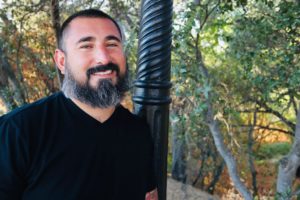 Once I was out of the hospital, I was thankful to be alive, thankful my wife was still by my side. I sucked it up and went to the VA and participated in prolonged exposure therapy, among many other therapy modalities (and still do them today). Also, getting back outdoors with my brothers to surf, golf, and be in the mountains and nature has done wonders for me. It’s been nice to connect with the earth and feel grounded again, it’s like I’m truly living in the present. I now have the capacity and training to deal with things that are bothering me and that’s something I didn’t have the ability to do a few years ago. Now that I’ve been able to turn things around, I’ve made it a priority to maintain a close relationship and connect with the guys in my unit so that everybody has the support they need. We lost a total of 9 guys while we were deployed to Sadr City in 2006, and since being back we’ve had 15 suicides and countless suicide attempts. I recognize the need for organizations like Headstrong and the services they provide. It’s important for us veterans to reach out for help if we are struggling, we didn’t go to war alone and we shouldn’t be fighting this war in our heads alone. I’ve been a big advocate and proponent of ending the stigma around mental health treatment because in doing so I’ve helped myself, my guys and other people who are struggling to ask for help. This is so personal to me because I was impacted by the suicide epidemic with not only my family, but my unit as well. I try not to take anything in life for granted anymore. I have an amazing wife who’s helped me so much and been an anchor that I can rely on, even on my worst days. I have four kids that are not mine biologically, but they are mine and I raise them everyday. Two of them my wife adopted out of foster care and two of them are my wife’s from a previous marriage- they are my why. We have an amazing life and all of this is possible because I finally got the help I needed and I continue to reach out on my bad days. I got a second chance and I don’t want to take that for granted, so I’m going to continue to speak out and make a difference in anyway I can.”
Once I was out of the hospital, I was thankful to be alive, thankful my wife was still by my side. I sucked it up and went to the VA and participated in prolonged exposure therapy, among many other therapy modalities (and still do them today). Also, getting back outdoors with my brothers to surf, golf, and be in the mountains and nature has done wonders for me. It’s been nice to connect with the earth and feel grounded again, it’s like I’m truly living in the present. I now have the capacity and training to deal with things that are bothering me and that’s something I didn’t have the ability to do a few years ago. Now that I’ve been able to turn things around, I’ve made it a priority to maintain a close relationship and connect with the guys in my unit so that everybody has the support they need. We lost a total of 9 guys while we were deployed to Sadr City in 2006, and since being back we’ve had 15 suicides and countless suicide attempts. I recognize the need for organizations like Headstrong and the services they provide. It’s important for us veterans to reach out for help if we are struggling, we didn’t go to war alone and we shouldn’t be fighting this war in our heads alone. I’ve been a big advocate and proponent of ending the stigma around mental health treatment because in doing so I’ve helped myself, my guys and other people who are struggling to ask for help. This is so personal to me because I was impacted by the suicide epidemic with not only my family, but my unit as well. I try not to take anything in life for granted anymore. I have an amazing wife who’s helped me so much and been an anchor that I can rely on, even on my worst days. I have four kids that are not mine biologically, but they are mine and I raise them everyday. Two of them my wife adopted out of foster care and two of them are my wife’s from a previous marriage- they are my why. We have an amazing life and all of this is possible because I finally got the help I needed and I continue to reach out on my bad days. I got a second chance and I don’t want to take that for granted, so I’m going to continue to speak out and make a difference in anyway I can.”
